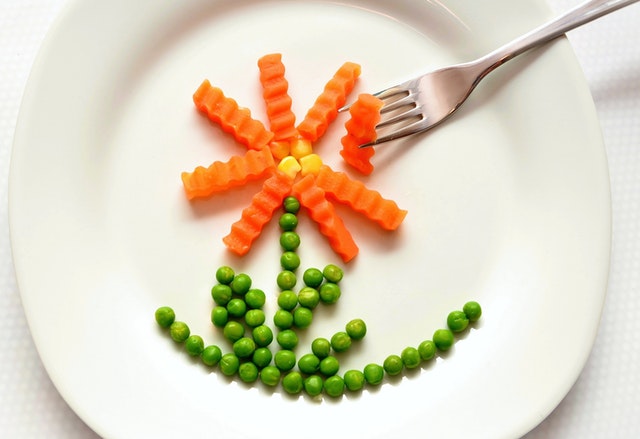Do children need to take multi-vitamin supplements? We asked two experts for their advice.
Dr Goh Siok Ying, Paediatrician
How do I know if my child needs supplements?
Dr Goh: In general, if your child has a balanced diet, and is not a fussy eater, multivitamins are not necessary.

However, if your child is very selective about the kinds of foods he eats, he may require supplements depending on what his food habits are like. For example, if your child refuses to drink milk, some calcium and vitamin D supplements may help build stronger bones.
In certain medical conditions, supplements may be required too. Your doctor will advise you if this is needed.
When is the best time to give them to my child?
Dr Goh: Multivitamins can be given anytime of the day. However, certain vitamins are better given with some foods to aid in their absorption.
What are the things I should look out for when buying supplement for my kids?
Dr Goh: In general, buy supplements from reputable brands to ensure the quality of the supplements you give to your child. Also, read the labels to know exactly what you are giving your child.
Do not try to give several supplements at the same time, as certain vitamins may be present in different brands of supplements you are giving, and this may lead to overdose as some vitamins tend to be stored and accumulated in the body.
When in doubt, do check with your healthcare professional before giving any supplements.
The above excerpt was first published in The New Age Parents e-magazine
Ms Chua Kay Tse, Blackmores Naturopath Health Educator and Senior Training Manager Singapore
Do children need supplements generally? If no, why?

Ms Chua: Whether children need supplements or not depends on their current health status, diet and lifestyle. If the child is in generally in good health, eats a well-balanced and wholesome diet and gets sufficient exercise, supplements are usually not needed.
However, today’s children are consuming more unhealthy foods, such as sugary snacks and drinks [i], and may not receive their daily nutritional requirements as a result.
It is also quite common for kids to be picky eaters in their growing years. It is important for parents to observe and take note of their child’s eating behaviour. If they are worried their little ones are not consuming enough nutrients, they can consider adding a multivitamin to their child’s diet.
What types of foods they should eat to get their minerals and vitamins?
Ms Chua: For a well-balanced diet, it is important to include a wide variety of options from the 5 food groups: vegetables and fruits, wholegrains, dairy, lean meat and small amounts of healthy fats, especially from cold-water fish, nuts and seeds.
Calcium-rich foods such as almonds and yoghurt are essential for development for strong bones and teeth, while iron from chicken and tofu is important for the brain and blood. Foods rich in zinc, such as peas and red meat, are important for overall growth and immunity.

Iodine-rich foods such as seafood and sea vegetables help in tissue development. Vegetables are also a good source of vitamins, such as vitamin C (for healthy gums and immunity) and folate (for blood cells and DNA formation), which are essential for the children’s growth [ii].
Who are the children who need supplements?
Ms Chua: The truth is, our bodies are constantly exposed to external pollutants, and supporting your child’s immune system with appropriate antioxidant nutrients such as vitamin A, C, D, E and zinc is important all year round.
If your little ones are picky when it comes to consuming immune boosters, such as leafy dark green vegetables, iron rich meats/alternatives, and orange coloured vegetables, parents can consider a supplementation regime.
For example, children with a vegan diet may need supplements containing Vitamin B12 [ii], an important nutrient for the nervous system and red blood cells, as they are only found in animal foods. If they are unsure, they can speak to their healthcare professional for advice.
When to supplement (what is the appropriate age to give)?
Ms Chua: There is no age limit to supplementation. However, it is required only when dietary and lifestyle intervention is unavailable, insufficient or compromised due to health conditions. If you are unsure, speak to your healthcare professional for advice and follow the recommended consumption age as stated on product labels.
Important considerations to make when giving children supplements?

Ms Chua: Seek advice from your healthcare professional before starting your child with any supplementation regime. Ensure the quality, safety and efficacy of the supplement product by obtaining assurance from the manufacturer. And, always read the labels and follow the recommended supplement dosage.
If parents do consider giving vitamins/ supplements to their kids, what tips/advice would you share?
Ms Chua: Purchase supplements made by a reputable company that manufactures under the strict Code of ‘Good Manufacturing Practice Guidelines’, thereby ensuring that the products are effective, of high quality, and safe for consumption.
Purchase the products from official or verified vendors to confirm that the products are authentic. Look out for the expiry date in the supplements when purchasing to ensure that it’s still fresh.
Stop taking the supplement and report to the manufacturing company if there are changes in the smell or physical appearance of the product or if your little ones develop undesirable reactions.
References:
[i] The Straits Times. Are Singapore kids eating too much sweet stuff? Retrieved from https://www.straitstimes.com/singapore/health/are-kids-eating-too-much-sweet-stuff
[ii] Raising Children. Vitamins and minerals. Retrieved from http://raisingchildren.net.au/articles/vitamins.html
* * * * *
Like what you see here? Get parenting tips and stories straight to your inbox! Join our mailing list here.
Want to be heard 👂 and seen 👀 by over 100,000 parents in Singapore? We can help! Leave your contact here and we’ll be in touch.
























































